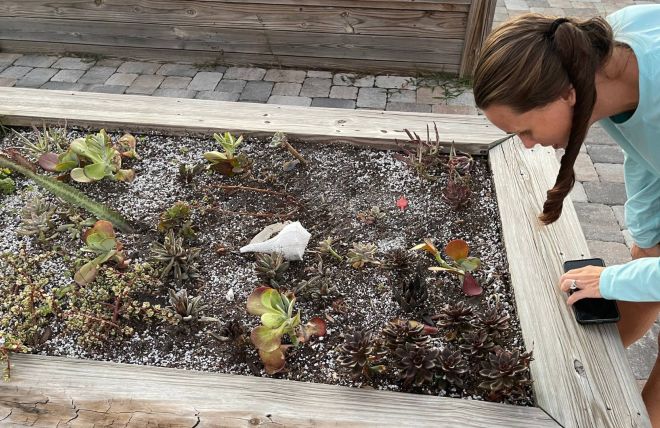Crafted with the precision of AI, our blogs blend human insight with digital innovation for content that truly resonates.
Creating and managing impactful recycling programs within HOA communities is a vital step towards sustainability and environmental responsibility. By focusing on innovative recycling initiatives, HOAs can significantly reduce waste, conserve resources, and contribute to a healthier planet.
The Power of Recycling in HOAs
Recycling goes beyond just managing waste—it's about transforming our communities into models of efficiency and sustainability. For HOAs, implementing robust recycling programs means not only reducing landfill contributions but also fostering a culture of environmental stewardship among residents.
Recycling Plastic, Trash, Cans, and Bottles
Specific recycling categories like plastics, general trash, cans, and bottles are the cornerstone of effective recycling programs. By educating residents on how to recycle these materials correctly, HOAs can ensure that recyclable goods are processed efficiently, contributing to the overall effectiveness of recycling efforts.
Impactful Recycling Statistics
In 2021, Pennsylvania saw over 4.63 million tons of recyclable materials collected and processed, highlighting the significant impact recycling programs can have on reducing carbon dioxide emissions. This achievement is equivalent to removing over 1.48 million passenger vehicles from the road for one year. The United States had a recycling rate of 32.1 percent in 2018, with a goal set by the EPA to reach 50 percent by 2030. These statistics underline the importance and potential of recycling in mitigating environmental impact.
Convenient Recycling Solutions
Implementing accessible and user-friendly recycling stations is crucial for encouraging community participation in recycling programs. By strategically placing these stations in easily reachable areas within the HOA community, residents can more conveniently dispose of recyclables. Designing these stations for ease of use and clearly marking them for different types of recyclables such as plastic, paper, cans, and bottles can significantly enhance the effectiveness of recycling efforts.
Regular Recycling Events
Organizing community-wide recycling events for collecting specific items like electronics or hazardous waste is another effective strategy. These events provide residents with the opportunity to dispose of items that require special handling and cannot be processed through regular recycling stations. By holding these events periodically, HOAs can ensure the safe and responsible disposal of such materials, further contributing to the community’s sustainability goals.
List of Recycling Events for HOA Communities
- Electronic Waste Collection Day: A dedicated day for safely disposing of old electronics such as computers, televisions, and smartphones.
- Battery Recycling Drive: An event focused on collecting various types of batteries, ensuring they are recycled responsibly and safely.
- Paper Shredding and Recycling Event: A day for securely shredding and recycling sensitive documents.
- Hazardous Household Waste Collection: An event for the safe disposal of items like paint, chemicals, and cleaners.
- Plastic Recycling Rally: A community-wide initiative to collect and recycle plastic items.
- Glass Recycling Day: A specific day to bring glass bottles and jars for recycling.
- Used Clothing and Textile Recycling: An event for residents to recycle old clothing and textiles.
Community Garden Recycling Initiative
Integrating a recycling program within the community garden can be both resourceful and educational. Imagine a special event where residents bring compostable waste to contribute to the community garden's compost pile. Not only does this reduce organic waste, but it also enriches the garden soil, promoting sustainable gardening practices within the community. This initiative can foster a deeper sense of community involvement, as residents see their recyclable waste directly contributing to the growth and health of their communal green spaces.
These events not only facilitate proper recycling but also foster a sense of community involvement and environmental responsibility.
Overcoming Recycling Challenges
The recycling landscape faces numerous challenges, including varying sustainability approaches and consumer confusion about recyclable materials. HOAs can play a crucial role in overcoming these challenges by providing clear, consistent information on recycling practices and collaborating with local recycling centers to streamline processes.
Strategies for Successful HOA Recycling Programs
- Education and Awareness: Educate residents about the benefits of recycling and provide clear guidelines on what can be recycled.
- Partnerships with Local Facilities: Collaborate with local recycling centers to ensure recyclable materials are processed correctly and efficiently.
- Monitoring and Feedback: Regularly assess the effectiveness of the recycling program and seek resident feedback for continuous improvement.
Conclusion
Innovative recycling programs within HOA communities are essential for promoting sustainability and environmental responsibility. By focusing on education, convenience, and collaboration, HOAs can develop effective recycling initiatives that make a significant impact. The journey towards a greener future is a collective effort, and with the right strategies, HOA communities can lead the way in conservation and waste reduction.
Sources
- Pennsylvania Department of Environmental Protection. (n.d.). Recycling Reports and Studies. Retrieved from https://www.dep.pa.gov/Business/Land/Waste/Recycling/Pages/Recycling-Reports-and-Studies.aspx
- U.S. Environmental Protection Agency. (n.d.). National Overview: Facts and Figures about Materials, Waste, and Recycling. Retrieved from https://www.epa.gov/facts-and-figures-about-materials-waste-and-recycling/national-overview-facts-and-figures-materials
- World Economic Forum. (2022, June). Recycling: Global Statistics, Facts, Plastic & Paper. Retrieved from https://www.weforum.org/agenda/2022/06/recycling-global-statistics-facts-plastic-paper/
- Recycling Technology Solutions. (n.d.). Recycling Facts & Statistics. Retrieved from https://www.rts.com/blog/recycling-facts-statistics/
- U.S. Environmental Protection Agency. (n.d.). America Recycles Day. Retrieved from https://www.epa.gov/circulareconomy/america-recycles-day







